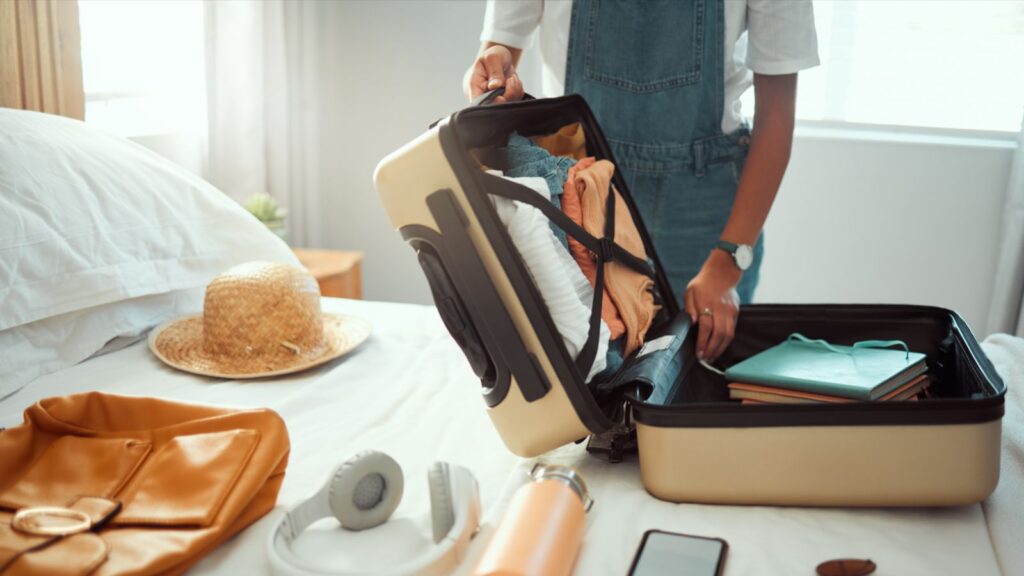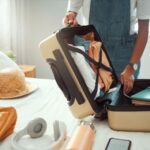Overpacking is one of the most common travel mistakes, but it’s one you can easily avoid with a little planning. Learn how to streamline your luggage so you can travel light, move freely, and focus on enjoying your trip without the hassle of lugging around a heavy suitcase.
Make a Packing List Beforehand
Creating a packing list is the best way to ensure you don’t bring unnecessary items. Write down everything you think you need, then go through the list and cross off anything that seems redundant or not essential.
Ask yourself: “Do I really need three pairs of shoes for a weekend trip?” If not, leave them out.
Some items to include:
- Essential clothing (one outfit per day, plus one extra)
- Comfortable shoes for walking
- Basic toiletries and medications
- Chargers and travel adapters
- Travel-sized versions of items
Choose Versatile Clothing
Stick to neutral colors and mix-and-match pieces. Choose outfits that can be layered or styled in multiple ways.
For example, a plain black t-shirt can be dressed up with a scarf or worn casually with jeans. This strategy reduces the number of items you need to pack while still giving you different outfit options.
Limit Shoes to Two Pairs
Shoes are bulky and take up a lot of space. Try to limit yourself to two pairs—one for comfort and one for style. If you know you’ll be walking a lot, pack a pair of comfortable sneakers and a pair of dressier shoes for evenings out. Wear the bulkier pair during travel to save space in your luggage.
Utilize Packing Cubes
Packing cubes are great for organizing and compressing your clothing. Use separate cubes for tops, bottoms, and undergarments. This way, you can easily see what you have and avoid digging through your suitcase.
Packing cubes also keep your clothes neatly folded, maximizing space and reducing wrinkles.
Leave Room for Souvenirs
If you’re someone who likes to bring back souvenirs, make sure to leave some empty space in your suitcase.
Instead of cramming everything in at the start, pack a foldable bag or an expandable suitcase. This way, you have extra room for gifts or purchases made during your trip.
Avoid “What If” Packing
It’s tempting to pack for every possible scenario, but this leads to overpacking. Instead, focus on what you know you’ll need. Most destinations have stores where you can buy anything you might have forgotten.
Plan for what’s most likely, and avoid adding extra items for “what if” situations.







